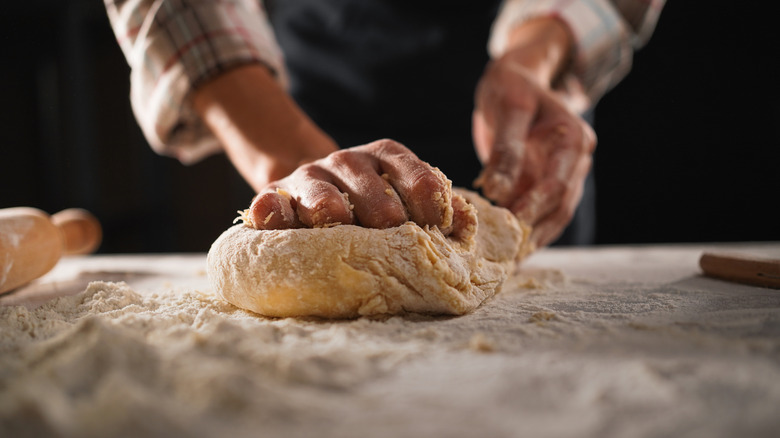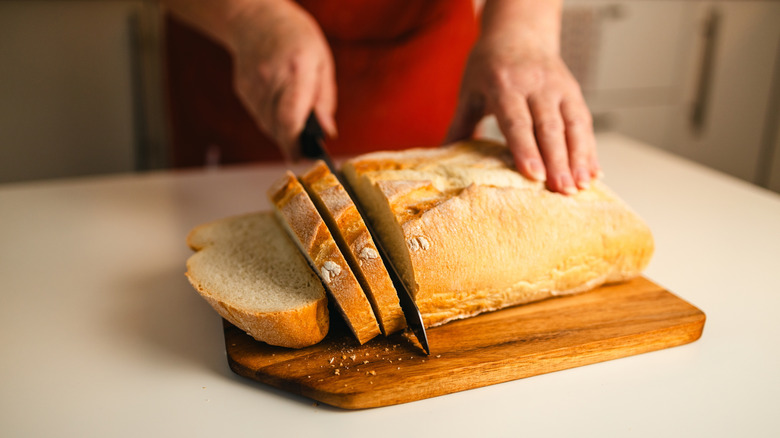The Secret Ingredient For The Softest Bread You've Ever Had
There's nothing quite like a warm, freshly buttered slice of homemade bread. From the aroma the moment you walk into the room to the perfectly chewy interior, fresh-from-the-oven bread is delicious on its own or as a side to any meal. Standard homemade bread recipes typically create a super-crunchy exterior and a super-chewy interior. The secret to creating a softer loaf from the outside to the inside? Vinegar (and bread flour instead of all-purpose flour).
Chowhound talked with Korine Adams, Wilton Sweet Studio instructor, about how adding vinegar to bread dough can change its consistency. "Vinegar improves gluten development by providing strength to the gluten network, resulting in a more stretchy, elastic dough that is easy to work with. This is caused by the acidity, which will also lead to a softer crumb," Adams exclusively told us. If you're not a fan of the slightly sour taste vinegar adds to your bread, consider using citric acid instead. You get a similar result with a slightly tangy flavor.
More tips for super-soft homemade bread
In addition to adding vinegar or citric acid to your dough, Korine Adams recommends you give your bread plenty of time to proof (your oven is the best place to proof bread). While it can be tempting to shorten the second rise to get your bread in the oven, doing so can result in a dense loaf. "With bread, it's all about time and temperature," Adams says. "Get the bread in the hot oven when it has reached its appropriate capacity of carbon dioxide." You can use both the look and feel of your dough to find out whether the second rise is complete, increasing the likelihood of a super-fluffy loaf. At the end of the proofing period, your dough should be about double its original size. If you poke the bread, it should create an indent that springs back slowly. If it springs back quickly, it needs more time before it hits the oven.
Storing homemade bread properly is key to long-lasting freshness and softness. Use a bread box if you're storing your bread for a week or less (let's be real — homemade bread typically disappears within a day or two). You can also freeze bread to help it stay fresh for months — just remember to pre-slice it so you're able to remove a few pieces at a time.

